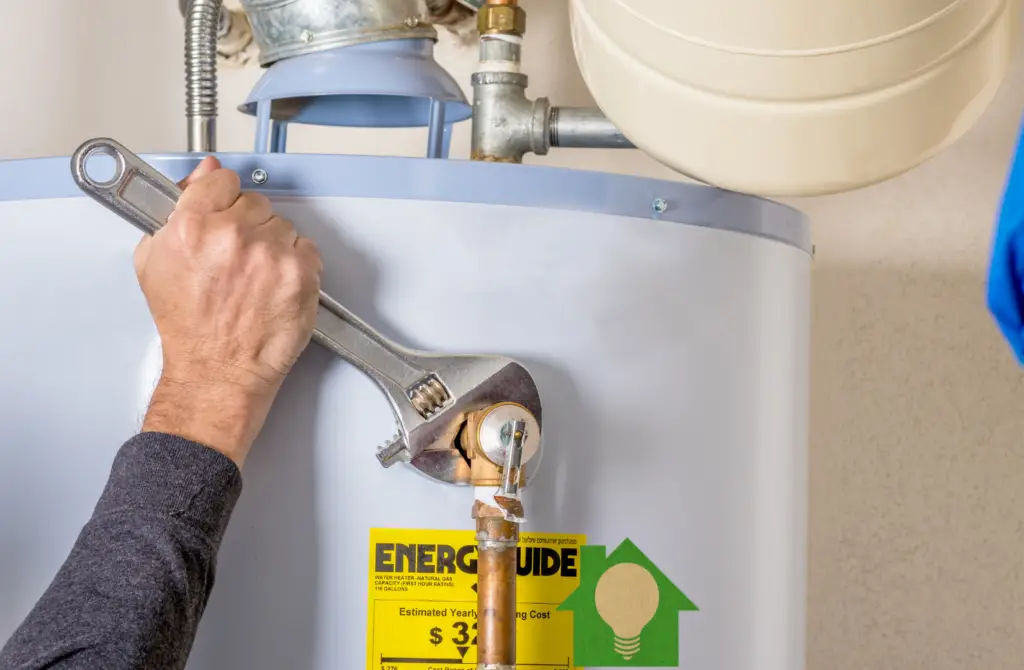Biomass boilers are a reliable and cost-effective alternative to traditional fossil fuel boilers, using renewable resources such as wood chips or pellets to generate heat and hot water. One of the key considerations when investing in a biomass boiler is the system’s expected lifespan.
Biomass boilers are designed to last for many years and require minimal maintenance. With proper care and regular servicing, they can last up to 25 years. Biomass boilers are highly efficient and can provide up to 90% efficiency during combustion.
With a lifespan of up to 25 years and highly efficient performance, these boilers are an excellent investment that can provide significant savings in the long run. Keep reading to learn more about the lifespan of a biomass boiler.

How Much Does a Biomass Boiler Cost?
The cost of a biomass boiler can vary depending on their sizes and type of system. But the good news is that they are much more affordable than other renewable energy sources.
The cost of a biomass boiler can range from as little as £2,000 to as much as £20,000. The size of the boiler, its efficiency, and the type of fuel used will all have an impact on the price. Smaller boilers are usually cheaper, while larger systems will cost more. The fuel cost can also be a factor, with wood pellets being the most common fuel type.
Do Certain Types of Biomass Boilers last longer than others?
It is crucial to consider the longevity of biomass boilers before purchasing them. It is widely accepted that certain biomass boilers last longer than others.
The most common types of biomass boilers are those that use wood chips, pellets, or logs. These boilers last longer than those that use other biomass types, such as agricultural waste or energy crops. This is because wood chips, pellets, and logs are denser and therefore can withstand more wear and tear. Additionally, these types of biomass are more energy-dense, meaning they can provide more heat per unit of fuel than other types of biomass.
Certain types of biomass boilers are more durable and efficient than others. This is great news for those looking to invest in a biomass boiler, as it means they can be confident in their purchase and enjoy the benefits of a long-lasting and efficient heating system. As such, it is highly recommended that those looking to purchase a biomass boiler consider the different types of biomass available and choose one that is likely to last longer.

Ways to Prolong the Life of your Biomass Boiler
Proper maintenance and upkeep can help prolong the life of your biomass boiler and ensure optimal performance. Here are some ways to extend the life of your biomass boiler:
Regular Cleaning and Maintenance
Regularly cleaning the boiler and its components, such as the fuel feed system, flue, and ash pan, can prevent the build-up of debris and ensure proper functioning. It is also important to have the boiler serviced by a qualified professional at least once a year. This heavily contributes to the lifespan of the Biomass boiler.
Use High-Quality Fuel
When high-quality fuel such as dry and well-seasoned wood is used, it reduces the amount of ash and creosote build-up in the boiler. Doing this can prolong its life. Using high-quality fuel, such as dry and well-seasoned wood, reduces the amount of ash and creosote build-up in the boiler.
Proper Fuel storage
Storing fuel properly, such as in a dry, covered area, can prevent moisture from getting into the fuel, which can cause damage to the boiler.
Monitor and Adjust settings
Monitoring the settings on the boiler, such as the water temperature, and making any necessary adjustments can help prevent damage and prolong the boiler’s life.
Check for Leaks
Regularly checking for leaks in the fuel and water systems can prevent damage and prolong the boiler’s life.
Properly Size the Boiler
Choosing the right size boiler for your heating needs can prevent the boiler from working too hard, which can shorten its life.
Insulate your Pipes
Insulating your pipes can help retain heat and prevent them from freezing, which can cause damage to the boiler.

What will Make the Lifespan of your Biomass Boiler Shorter?
Various factors can shorten the lifespan of a biomass boiler. It’s essential to understand these factors to properly maintain and operate the boiler, thus extending its life. Some of these key factors include:
Lack of Maintenance
Failure to regularly clean and maintain the boiler and its components can lead to a build-up of debris and cause damage to the boiler, leading to a shorter lifespan.
Poor Quality Fuel
Poor-quality fuel, such as wet or unseasoned wood, can cause damage to the boiler and reduce its lifespan.
Improper Fuel Storage
Storing fuel improperly, such as in a damp or unventilated area, can cause moisture to get into the fuel, which can cause damage to the boiler and shorten its lifespan.
Overuse
Running the boiler for long periods or at high capacity can cause damage and shorten the boiler’s lifespan.
Improper Installation
Improper installation, such as not following the manufacturer’s instructions, can cause damage and reduce the boiler’s lifespan.
Exposure to Elements
Boilers exposed to harsh weather conditions like heavy rain, snow, or extreme temperatures, without proper protection, can be damaged and have a shorter lifespan.
Neglect
Neglecting the boiler, such as not monitoring its settings or not addressing problems when they arise, can cause damage and shorten the boiler’s lifespan.
Boilers can last as long as they are maintained. This is why all factors responsible for their lifespan need to be considered and worked out.

Conclusion
Biomass Boilers have a lifespan of about 25years with proper maintenance. They require servicing from time to time to ensure efficiency levels remain at peak levels during their useful life. Without proper maintenance they cannot last long.
Other factors such as poor quality of fuel, moisture, continuous heavy usage without downtime can also shorten the lifespan of biomass systems.
